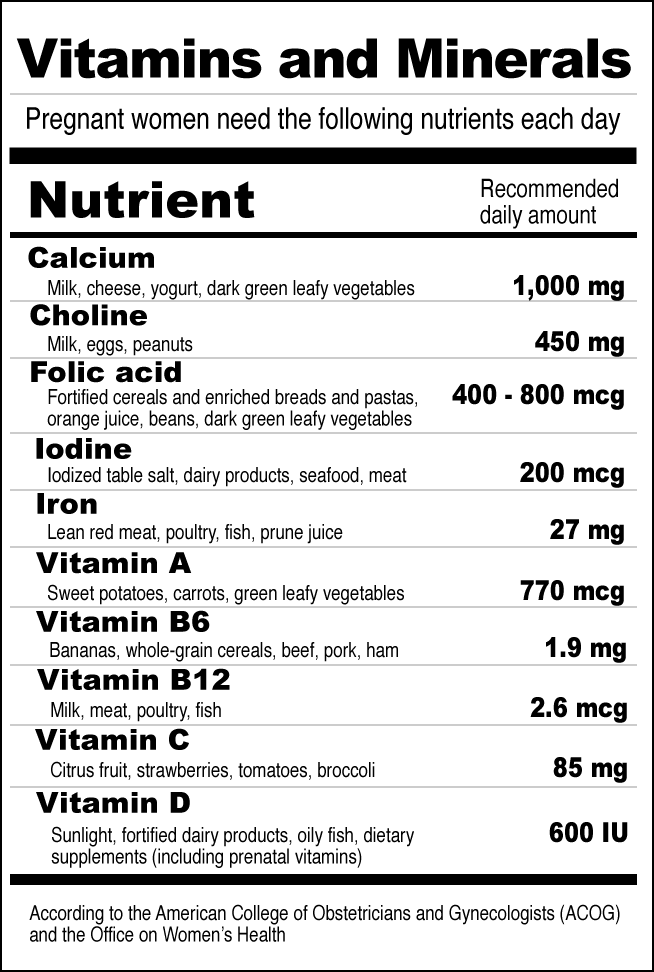Self-care tips for a happy, healthy pregnancy

After getting a positive pregnancy test result, you may wonder what lifestyle changes you should make and how you can pause and enjoy this exciting-yet-overwhelming time. Despite what you may have heard from family members, friends and colleagues, it’s absolutely possible to enjoy being pregnant. Here we offer some tips on how to make the most of this time — and make your pregnancy a bit easier, too.
How to have a healthy pregnancy
You may need to make some lifestyle changes to better ensure healthy outcomes for both you and the baby. Try to take these steps as soon as possible after getting a positive pregnancy test (and ideally before if you’re trying to conceive).
- Make an appointment with your healthcare provider. Getting appropriate prenatal care is one of the most important steps you can take for you and your baby.
- Talk to your doctor about any medications you’re taking. This includes prescription and over-the-counter medications as well as dietary and herbal supplements.1
- Be mindful about what you put into your body:
- Take a daily vitamin with 400 micrograms of folic acid before and during pregnancy. This B vitamin can help prevent major birth defects.1
- If your pregnancy was unexpected and you currently smoke, now is the time to quit.1
-
Avoid drinking alcohol. According to the Centers for Disease Control and Prevention (CDC), there is no known safe amount of alcohol to drink while pregnant.1
- If you use cannabis, talk to your doctor. Tetrahydrocannabinol (THC) can be passed to the fetus, which can harm its development.1
- If you use illegal drugs and you can’t quit, don’t be afraid to seek help. There are treatment programs available designed to assist pregnant women with addiction. Your doctor can help you find the resources you need.2
- Make sure you’re up to date on your vaccinations. They’ll provide protection in the first few months after your baby is born.1
- Watch out for mosquitos! If possible, do not travel to areas where West Nile Virus and Zika are prevalent. Wear protective clothing (such as long sleeves and pants) and use insect repellent. This will help protect you and your baby from the West Nile Virus1 and Zika.3, 4
- Exercise. According to the Office on Women’s Health (OWH), healthy pregnant women should get at least two hours and 30 minutes of low-impact, moderate-intensity aerobic activity a week, such as walking, swimming and cycling. Avoid activities in which you could get hit in the abdomen or fall.2
- Practice those Kegel exercises! Regularly tightening your pelvic floor muscles can help you push during delivery and recover more quickly from birth.2
- Talk to your healthcare provider if you’re feeling down or anxious (or both).1
- Protect yourself from environmental and workplace hazards, chemicals and toxins.1 Lead can sometimes be a concern in houses built before 1978, and arsenic is present in some well water. Be mindful of pesticides in products, and solvents in household chemicals like paint strippers and degreasers. Avoid second-hand cigarette smoke.2
- Seek support if you’re in an abusive relationship. The National Domestic Violence Hotline provides a wealth of resources and information, or talk to your healthcare provider during your next prenatal exam.2
What to eat during pregnancy
Nutrition recommendations, including what foods to eat, what not to eat and how much to eat during pregnancy can vary depending on your personal circumstances. Talk to your healthcare provider and make a plan that best fits you and your growing baby. Here are some general guidelines:
According to the American College of Obstetricians and Gynecologists (ACOG) and the Office on Women’s Health, pregnant women need the following nutrients each day. Many of these can be found in everyday healthy foods, but most women do not get enough folic acid for pregnancy from diet alone. That is why it’s essential to take a daily prenatal vitamin before and during pregnancy2,5:

Fluids
Drink plenty of water. According to the ACOG, pregnant women should drink 64 to 96 ounces (8 to 12 cups) of water every day. Here’s why: Water helps form the amniotic fluid around the fetus, aids digestion, helps nutrients circulate in the body and helps waste leave the body.6
What about caffeine and alcohol? The OWH says moderate amounts of caffeine appear to be safe and recommends less than 200 mg (about 12 oz of coffee) per day.2 However, no amount of alcohol is known to be safe. Alcohol in your blood can reach your baby, slowing its growth and potentially causing birth defects.2
What not to eat during pregnancy
You’ll likely come across differing opinions on what you can and can’t eat while pregnant. Talk to your healthcare provider and create a list. To help you get started, take note of foods you shouldn’t eat while pregnant 2, 4, 7:
Hot dogs and deli meats, unless steaming hot
- Undercooked meat and poultry
- Unpasteurized milk, soft cheeses and juices
- Store-made salads (think chicken and tuna salad)
- Fish with high levels of mercury, including shark, swordfish, king mackerel and tile fish
- Refrigerated smoked seafood and meat spreads
- Raw seafood including sushi, oysters and clams
- Raw sprouts, including alfalfa, clover, radish and mung bean
- Undercooked eggs (think raw batter, homemade Caesar dressing and tiramisu)
The OWH also suggests eating no more than 6 ounces of white (albacore) tuna per week and talking to your doctor before using any herbs or plants as medicine.2
How to enjoy your pregnancy
According to a recent study, women experiencing a healthy, planned pregnancy are generally happier while pregnant.8 Here are some ways to ensure that happiness:
- Make memories. Think of fun and special ways to tell those you love that you’re pregnant. Keep a journal to navigate your thoughts and feelings. Ask if you can record the sound of the heartbeat. Start saving mementos, such as ultrasound pictures and baby shower decorations. Take weekly pictures of your growing belly. Consider how you want to find out the baby’s sex: Will you share a private moment with your partner? Will you reveal the sex in a super-cute way online? Will you wait to find out until the moment the baby is born? Consider writing letters to your unborn child about how you’re feeling in this moment, letters they can read when they’re older.
- Invest in at least one good pair of maternity jeans. It’s important to have clothes that fit your changing body and make you feel good, too. Pants can be particularly tricky. Find the style of waist paneling that works for you. Don’t settle for something you’ll constantly have to pull up or readjust throughout the day.
- Let others mother you. In a recent study, pregnant women cited unconditional love and comfort when in distress, authentic relationships and satisfying friendships as key components to their happiness. Interestingly, the study also noted that “being married in itself had negligible effects,” meaning this love and support can come from many people, including friends and family members.9 Find your people, and don’t be shy about leaning on them.
- Invest in you. No, we’re not talking about an extra scoop of ice cream or a spa day (although massage during pregnancy has been proven beneficial).10 Rather, perhaps now is the time to think a little bigger:
- Think about your career. Are you happy in your job? What will your work-life balance look like after the baby is born? What changes can you make now to improve that balance?
- Think about your relationships. Are you in a healthy relationship? If you’re not in a relationship, do you have the support you need? Should you distance yourself from any toxic relationships?
- Think about your mental health. According to the CDC, one in eight women experiences symptoms of postpartum depression,11 and in 2015 the rate of depression diagnoses at delivery was seven times higher than in 2000.12 If you struggle with anxiety or depression, or you have in the past, talk to your healthcare provider about proactive steps you can take now.
How to keep a flexible mindset
One of the more humbling aspects of pregnancy and motherhood is acknowledging that you can’t control everything. Surprises will crop up, some welcome, some not so much. You may face unexpected health concerns, be put on bed rest, or find out you’re not having just one baby, but two (or more!).
When you receive unexpected news, take some time to sit with it. Talk to your healthcare provider. Rely on those you trust for support; you may find it helpful to reach out to others who have gone through something similar. Busy yourself by making a detailed plan with next steps. Through it all, don’t judge your feelings. Yes, pregnancy hormones are at play, but also remember you’re human — and you’re going through one of the biggest changes you’ll ever experience. You’re allowed to feel rattled when plans change.
Sometimes the dos and don’ts of pregnancy can feel overwhelming. But when you really dig in, the guidance is simple: Try to live a healthy lifestyle. Lean on those who love and support you. And savor those moments of happiness and anticipation when you can. Hopefully, you’ll have plenty.
Sources:
- “During Pregnancy,” (March 30, 2021), Centers for Disease Control and Prevention,” https://www.cdc.gov/pregnancy/during.html.
- “Staying healthy and safe,” (March 14, 2019), Office on Women’s Health, U.S. Department of Health & Human Services, https://www.womenshealth.gov/pregnancy/youre-pregnant-now-what/staying-healthy-and-safe/#1.
- “Zika Virus,” (May 9, 2019), Centers for Disease Control and Prevention,” https://www.cdc.gov/zika/pregnancy/index.html
- “10 Tips for Preventing Infections Before and During Pregnancy,” (March 10, 2021), Centers for Disease Control and Prevention,” https://www.cdc.gov/pregnancy/infections.html
- “Nutrition During Pregnancy,” (2021, March), The American College of Obstetricians and Gynecologists, https://www.acog.org/womens-health/faqs/nutrition-during-pregnancy.
- “How much water should I drink during pregnancy?,” (2020, October), The American College of Obstetricians and Gynecologists, https://www.acog.org/womens-health/experts-and-stories/ask-acog/how-much-water-should-i-drink-during-pregnancy.
- “People at Risk: Pregnant Women,” (September 25, 2020), U.S. Department of Health and Human Services, https://www.foodsafety.gov/people-at-risk/pregnant-women
- Luthar, S. S., & Ciciolla, L, “Who mothers mommy? Factors that contribute to mothers' well-being,” Developmental Psychology, (2015), 51(12), 1812–1823, https://doi.org/10.1037/dev0000051.
- Rukiye Türk, Tuğçe Sakar, Reyhan Erkaya, “The Effect of Pregnancy on Happiness,” Procedia - Social and Behavioral Sciences, (2017), 237, 1247-1253, https://doi.org/10.1016/j.sbspro.2017.02.198.
- Field T., “Pregnancy and labor massage,” Expert review of obstetrics & gynecology, (2010), 5(2), 177–181, https://doi.org/10.1586/eog.10.12.
- “Depression During and After Pregnancy,” (May 13, 2021), Centers for Disease Control and Prevention, https://www.cdc.gov/reproductivehealth/features/maternal-depression/index.html.
- Haight, Sarah C. MPH; Byatt, Nancy DO, MS; Moore Simas, Tiffany A. MD, MPH; Robbins, Cheryl L. PhD, MS; Ko, Jean Y. PhD, “Recorded Diagnoses of Depression During Delivery Hospitalizations in the United States, 2000–2015,” Obstetrics & Gynecology, (June 2019), 133(6), 216-1223, doi: 10.1097/AOG.0000000000003291.




